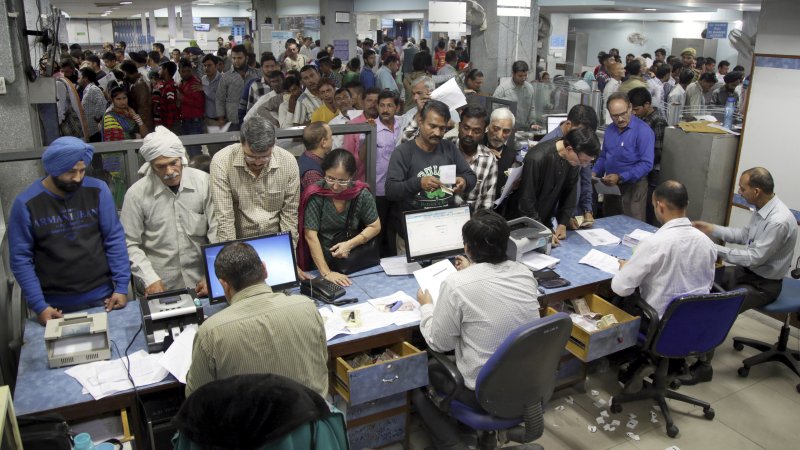The Indian Supreme Court declined to issue a stay halting a currency exchange in the country aimed at eliminating counterfeit and stock-piled money the government says is fueling corruption in the country. While citizens still have until Dec. 30 to swap their old cash for the new notes, the government has been asked to come up with a plan to make the changeover less inconvenient by Nov. 25. Photo by Jaipal Singh/European Photo Agency
NEW DELHI, Nov. 16 (UPI) -- The Supreme Court in India said it would not stop demonetization in the country Tuesday, but asked the government to explain its plan to make the currency change currently underway run more smoothly.
Indian Supreme Court Chief Justice TS Thakur and Justice DY Chandrachud said Tuesday they would not grant a requested stay of the currency change, setting a hearing for Nov. 25 when they expect to hear details on how the government will ease the inconvenience of the change for citizens.
Indian Prime Minister Narendra Modi surprised Indians last week with the sudden announcement that 500-rupee and 1,000-rupee notes need to be exchanged for new currency as part of an effort to eliminate counterfeit and stock-piled currency fueling corruption in the country.
"We will not be granting any stay," the court said in its decision, asking officials of the government "what more steps are you exploring and considering in relation to inconvenience caused to people?"
The government said it estimates significantly more "black money" -- the term in India for counterfeit and illegally stock-piled money -- will be changed at banks and ATMs than will be deposited by citizens.
The government's expectation is those who deposit exorbitant amounts of money will have to give a reasonable explanation, helping to reveal some corruption in the country, and that the use of black money will no longer be possible because of the change in currency.
"That will be neutralized," Indian attorney general Mukul Rohatgi said when explaining Modi's hope for forcing Indians to replace the most used currency in the country.















